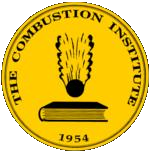Incertitudes dans les écoulements réactifs
Le Groupement Français de Combustion a organisé le 23 mars 2016 au Laboratoire EM2C (CNRS) CentraleSupélec (Châtenay-Malabry) une journée thématique dédiée aux incertitudes dans les écoulements réactifs aussi bien dans le contexte expérimental que numérique. Cette journée a permis d’apprécier les enjeux et les efforts mis en oeuvre sur le traitement de ces incertitudes au travers des thématiques suivantes :
- Cinétique chimique
- Modèles et mesures dans les flammes
- Méthodes de quantification d’incertitudes
Organisateurs scientifiques :
Ronan Vicquelin (CentraleSupélec, EM2C)
Stéphane Jay (IFPEN)
Benoît Fiorina (CentraleSupélec, EM2C)
Programme :
Conférence d’ouverture, G. Iaccarino (Stanford University)
Cinétique chimique :
• Determining predictive uncertainties and global sensitivities for large parameters systems: A case study for n-butane oxidation, R. Bounaceur (LRGP)
• Modeling propagation of detailed chemical mechanism with tabulated chemistry, N. Dumont (EM2C)
• RCM Characterization Initiative: Reducing the experimental scatter in ignition data, G. Vanhove (PC2A)
• Benchmarking for the kinetic accuracy of ab initio calculations, A. Zaras (ICARE)
Modèles et mesures dans les flammes :
• Auto-thermal reforming (ATR) of natural gas: An automated derivation of optimized reduced chemical schemes, N. Jaouen (CORIA)
• Study of the influence of the flame consumption speed on the flame topology in a premixed swirled non-adiabatic combustor, A. Chatelier (ONERA/EM2C)
• On the estimation of biais and uncertainties on laminar burning velocity obtained from spherical expanding flames, B. Renou (CORIA)
• Uncertainties induced by phase-locked measurements of dynamic phenomena, L. Zimmer (EM2C)
Méthodes de quantification d’incertitudes :
• Uncertainty Quantification Method in Chemical Systems and Stochastic Simulators, O. Le Maître (LIMSI)
• An uncertainty quantification framework coupled with a 1D Physics-based model for the prediction of NOx emissions in RQL combustion chamber, H. Musaefendic (Safran)
• Cost-effective data-driven fire behavior modeling by combining uncertainty quantification and data assimilation methods, M. Rochoux (CERFACS)
• Sensitivity analysis of the mixing layer flow configuration by the use of generalized polynomial chaos, M. Meldi (Pprime)
• Introducing UQ for thermoacoustic analysis: Longitudinal and annular applications, M. Bauerheim (LMFA)



